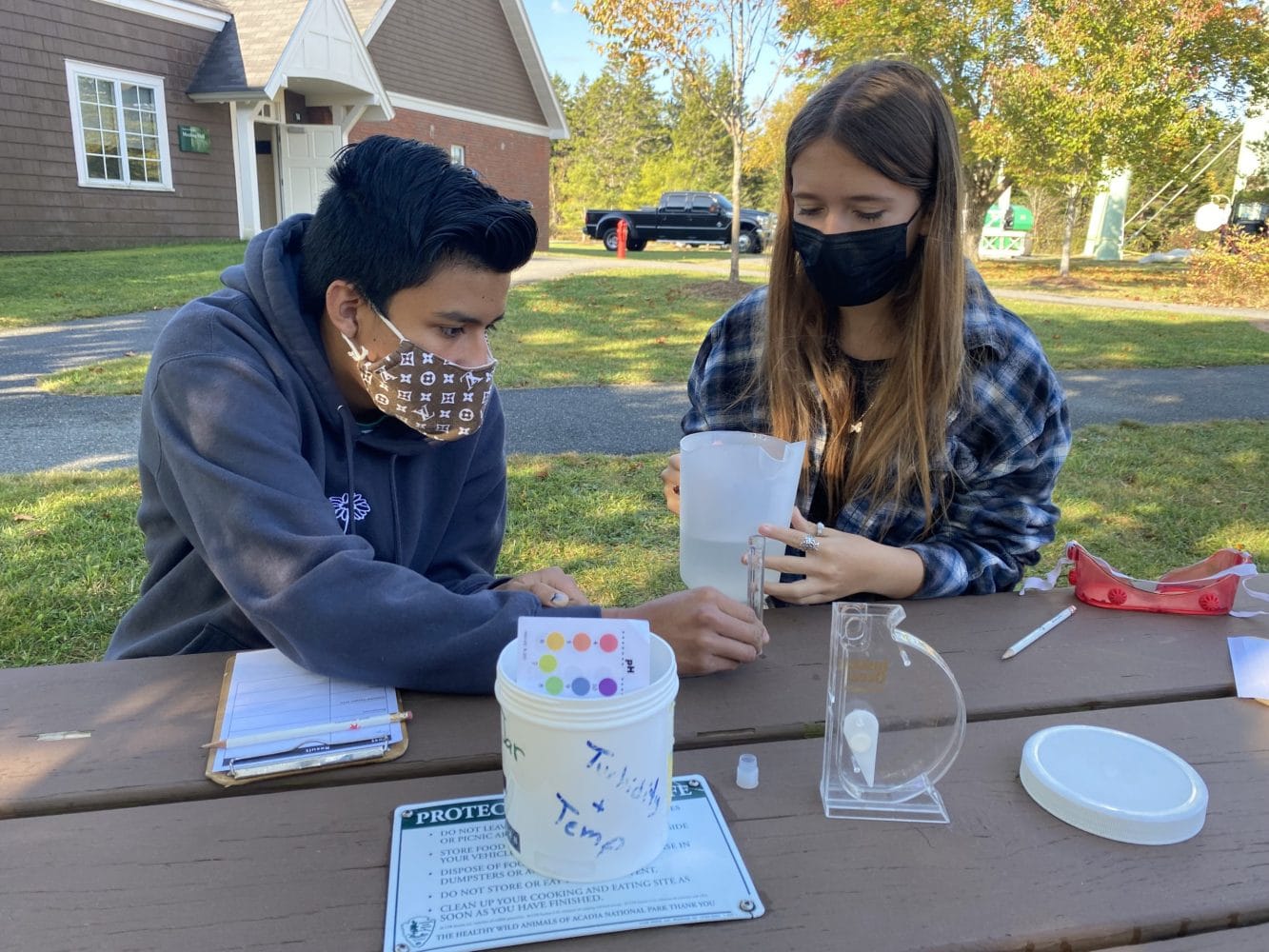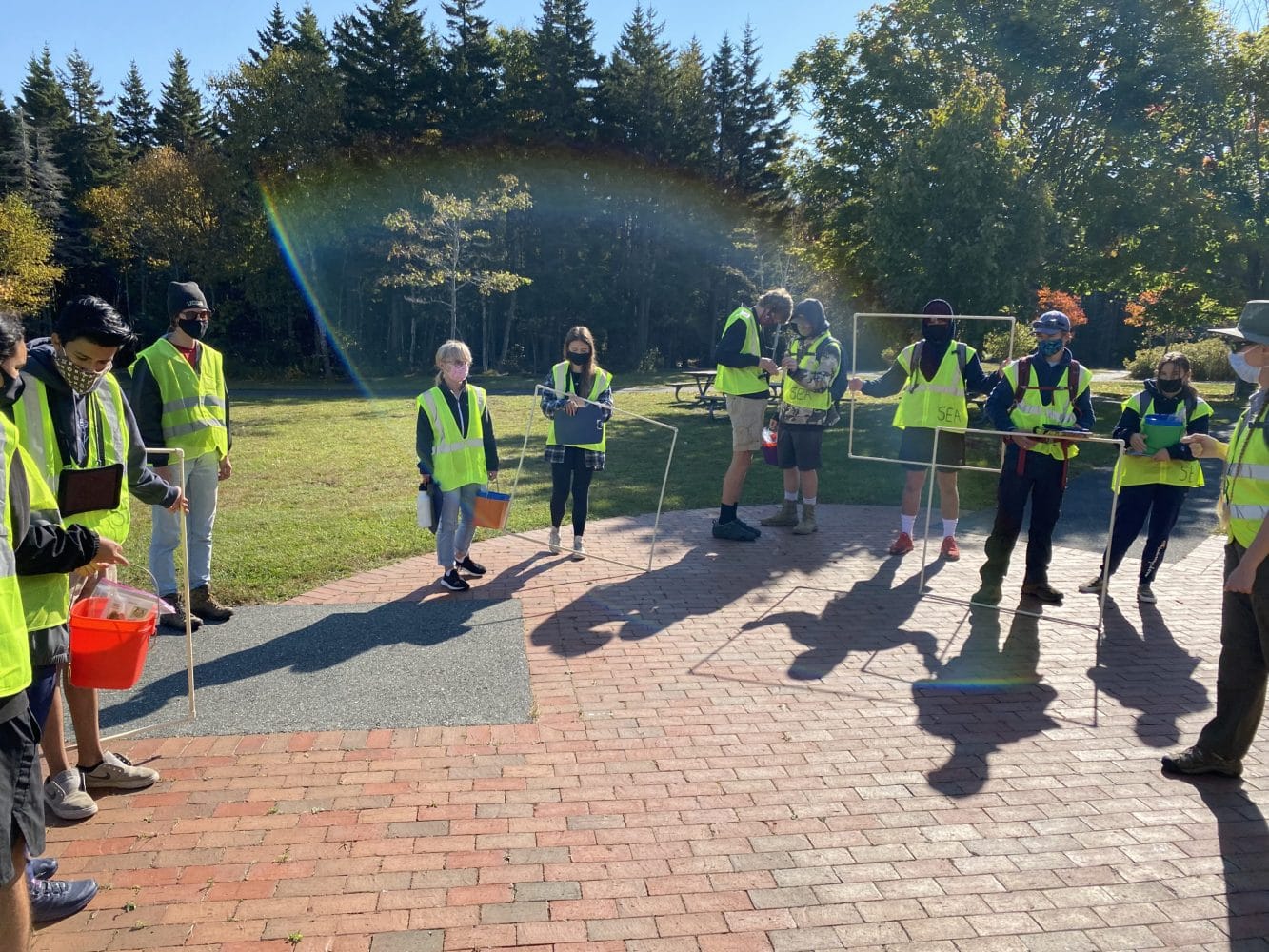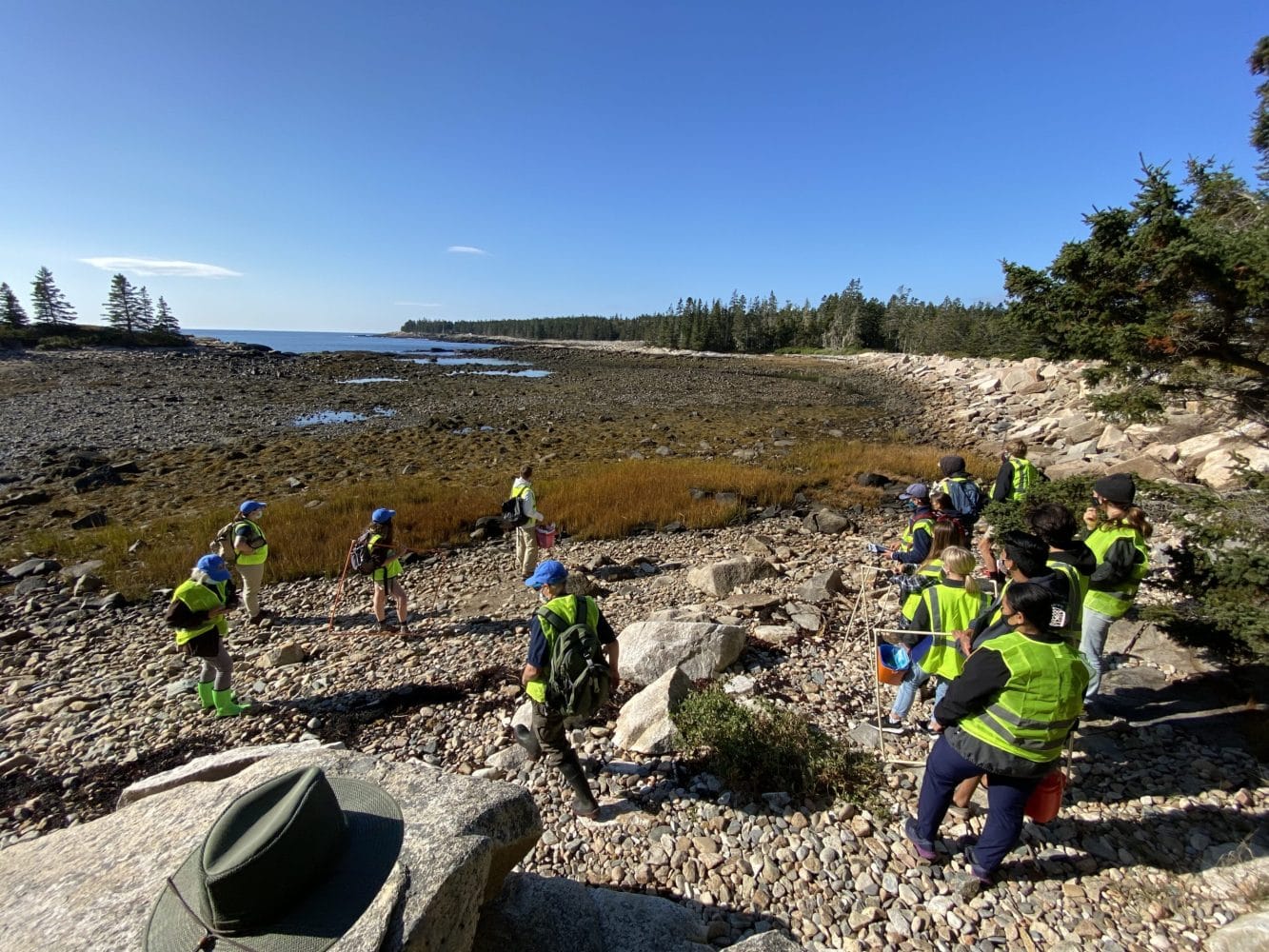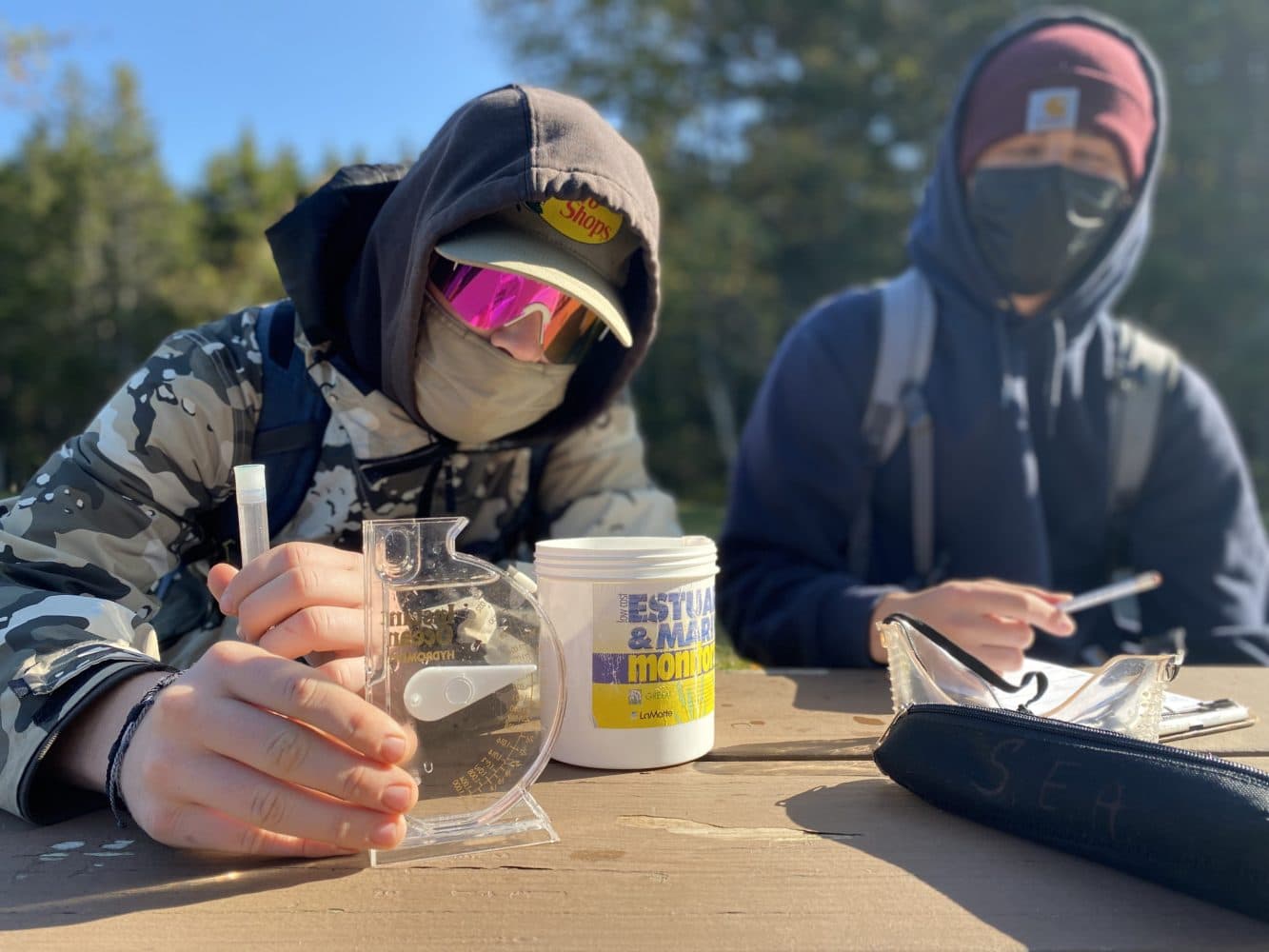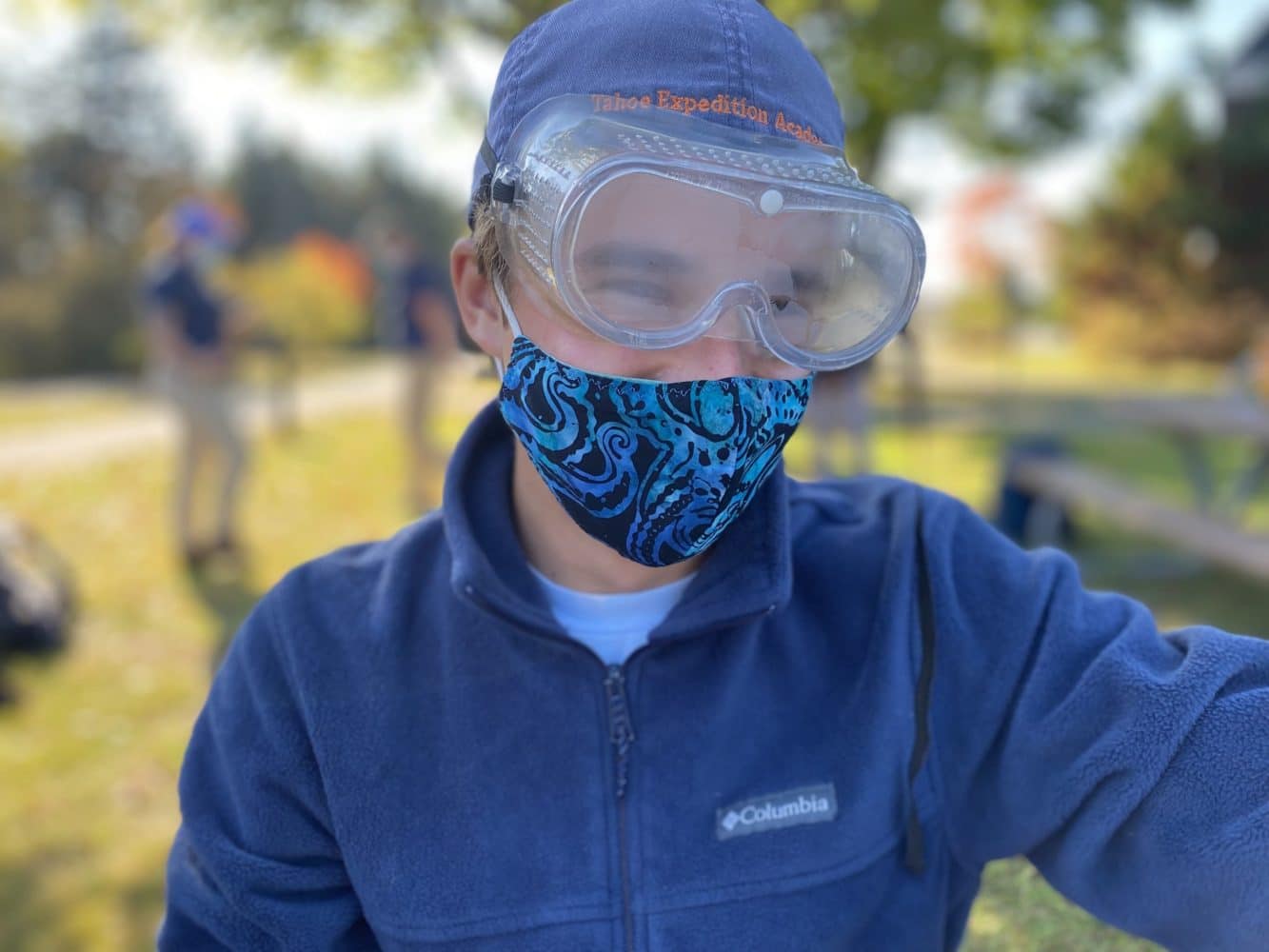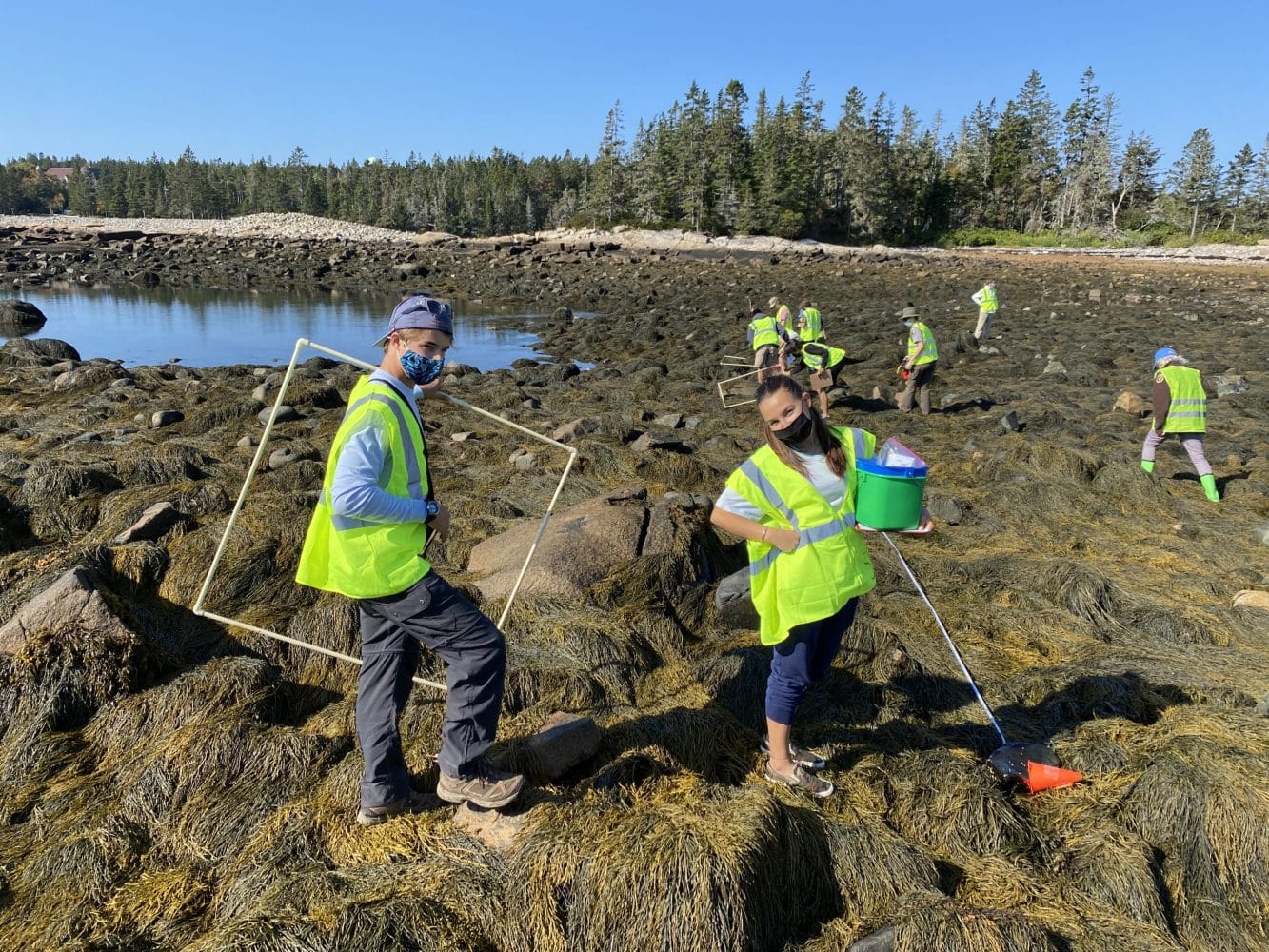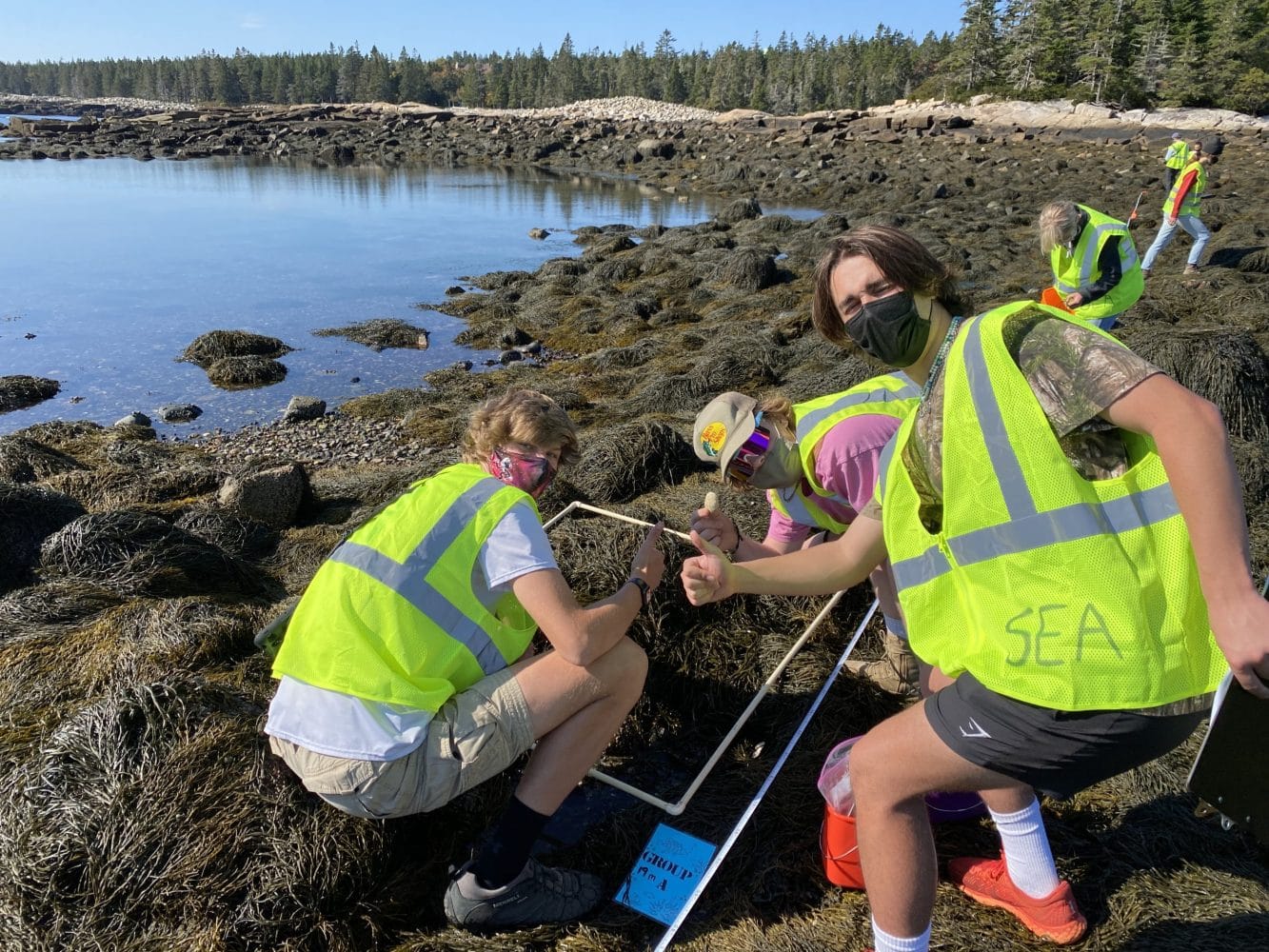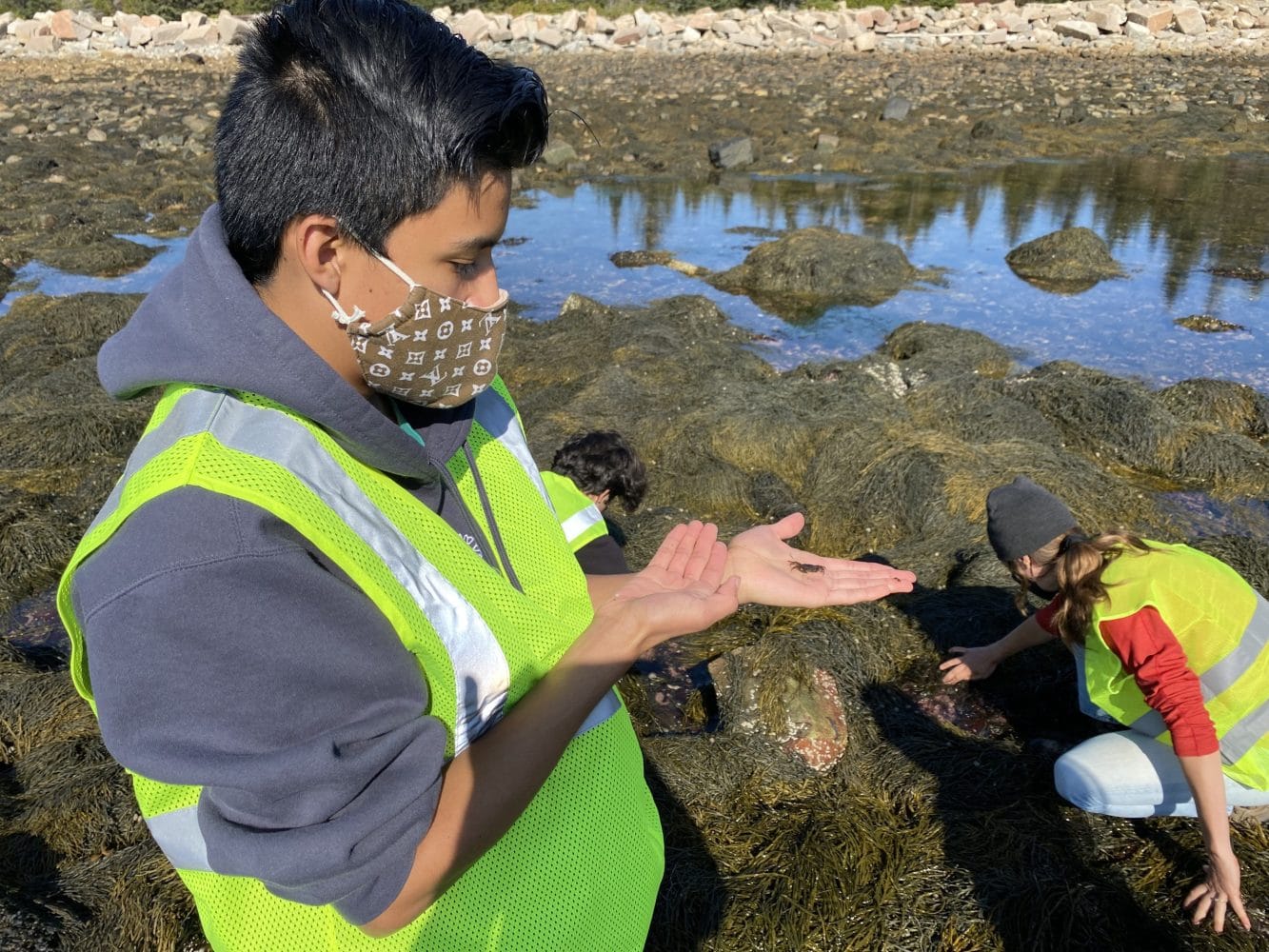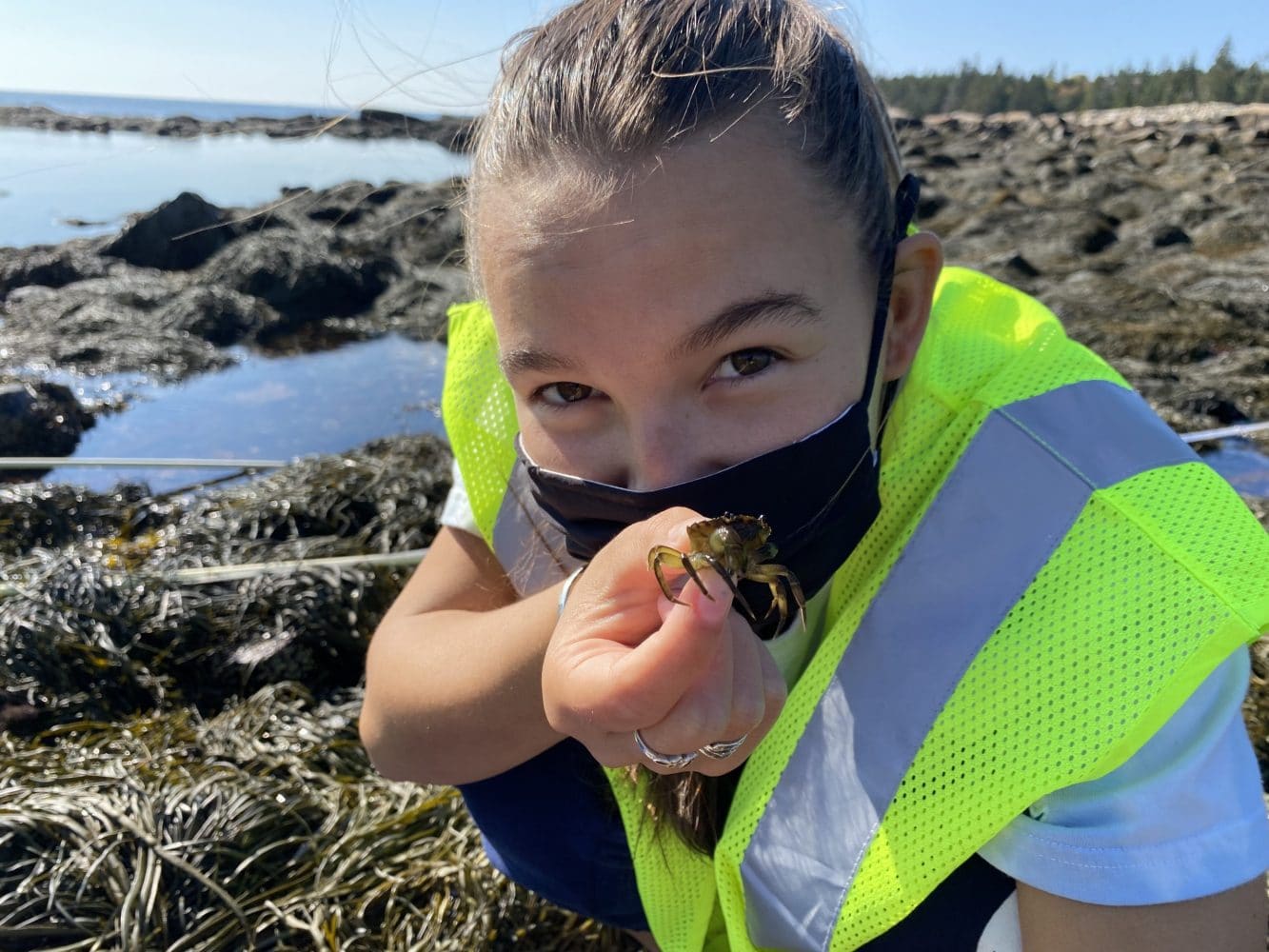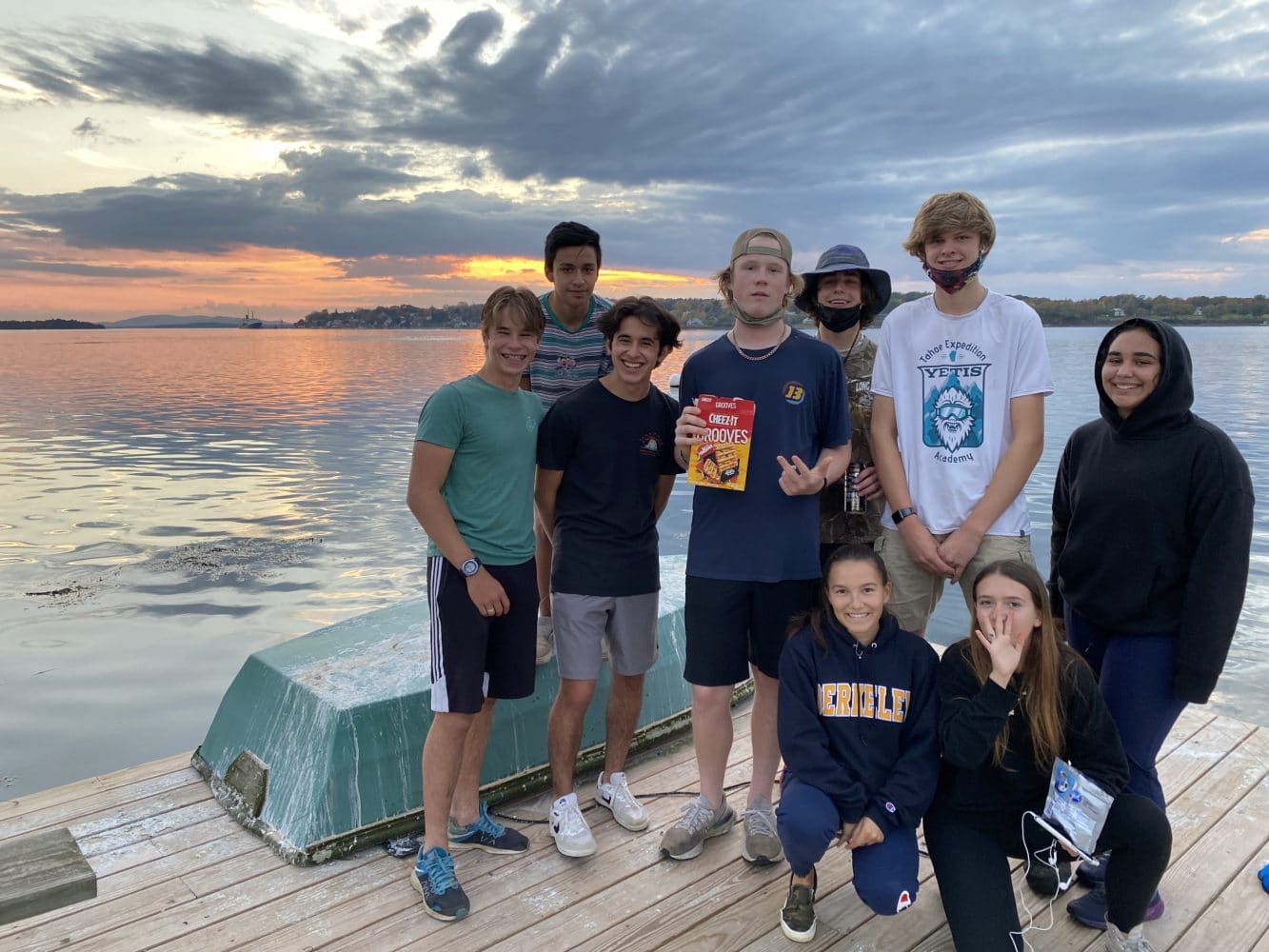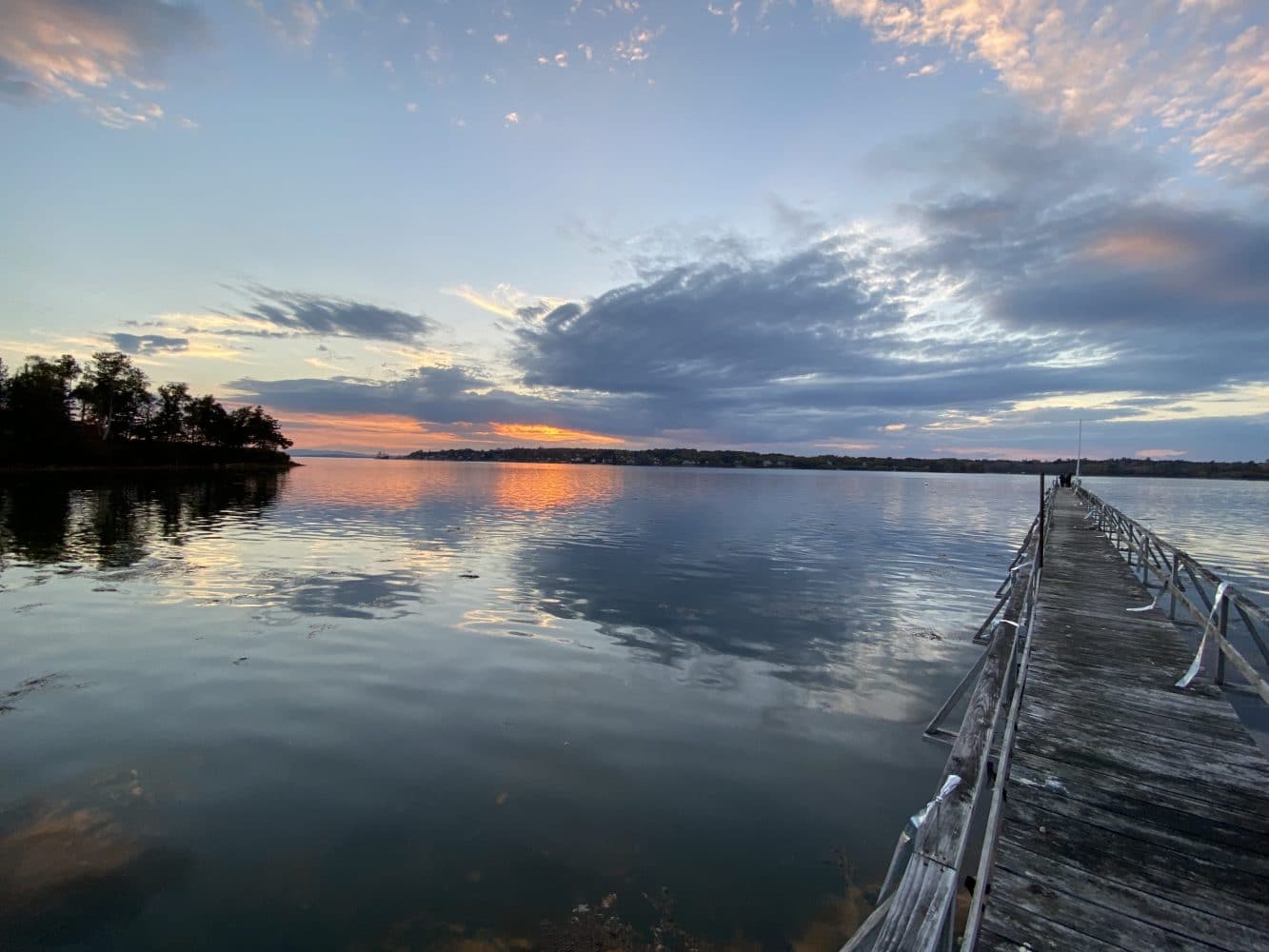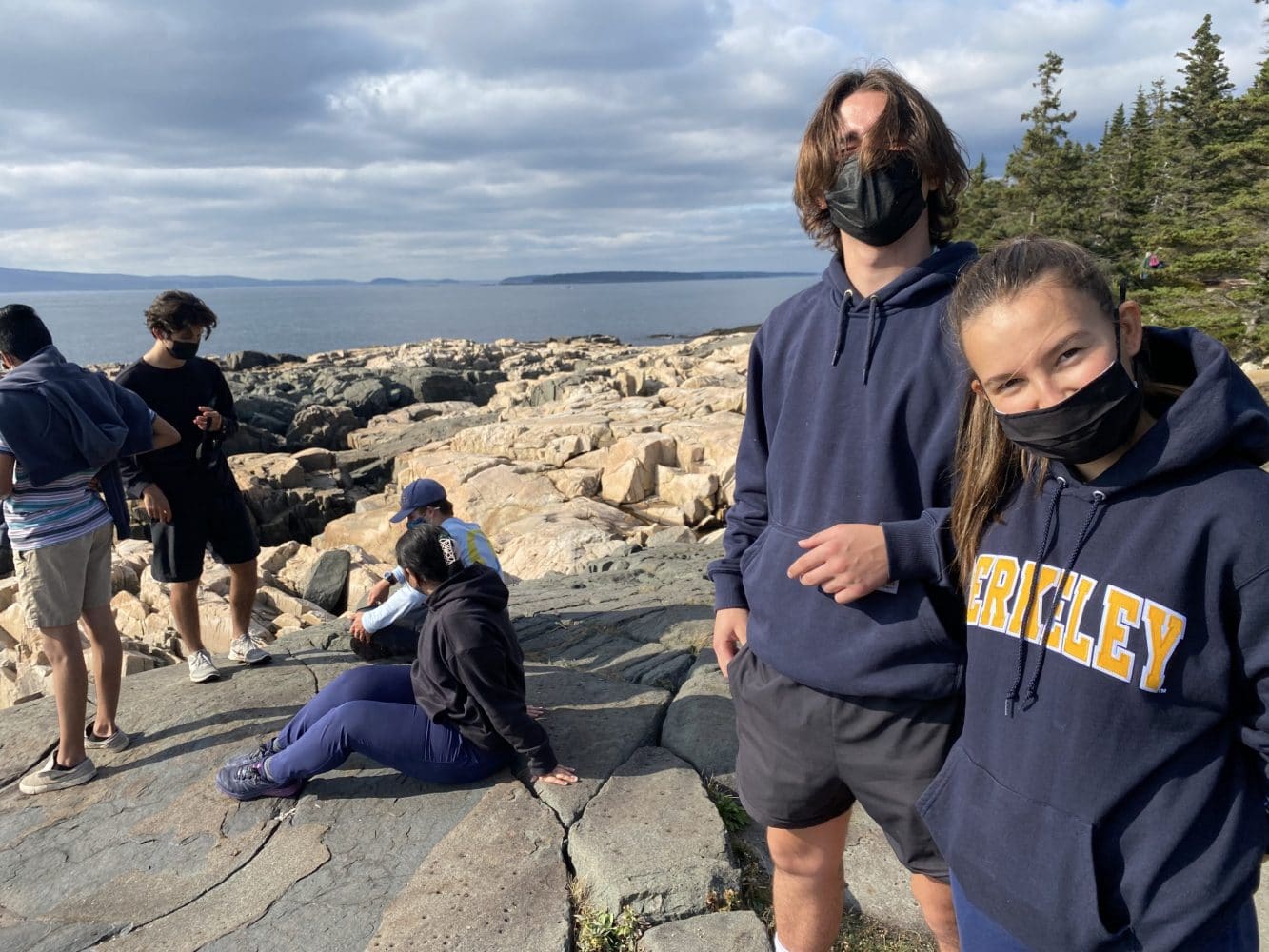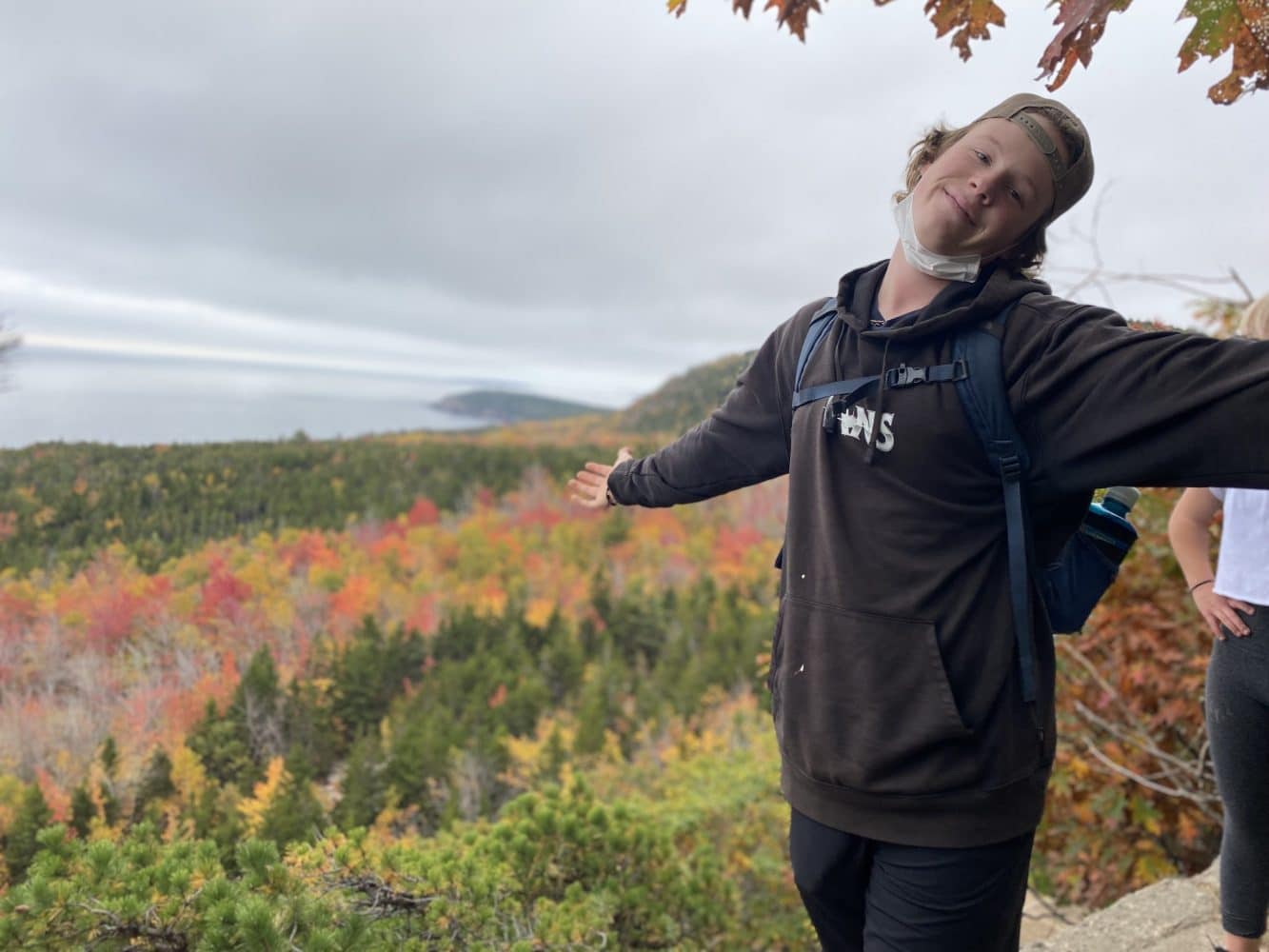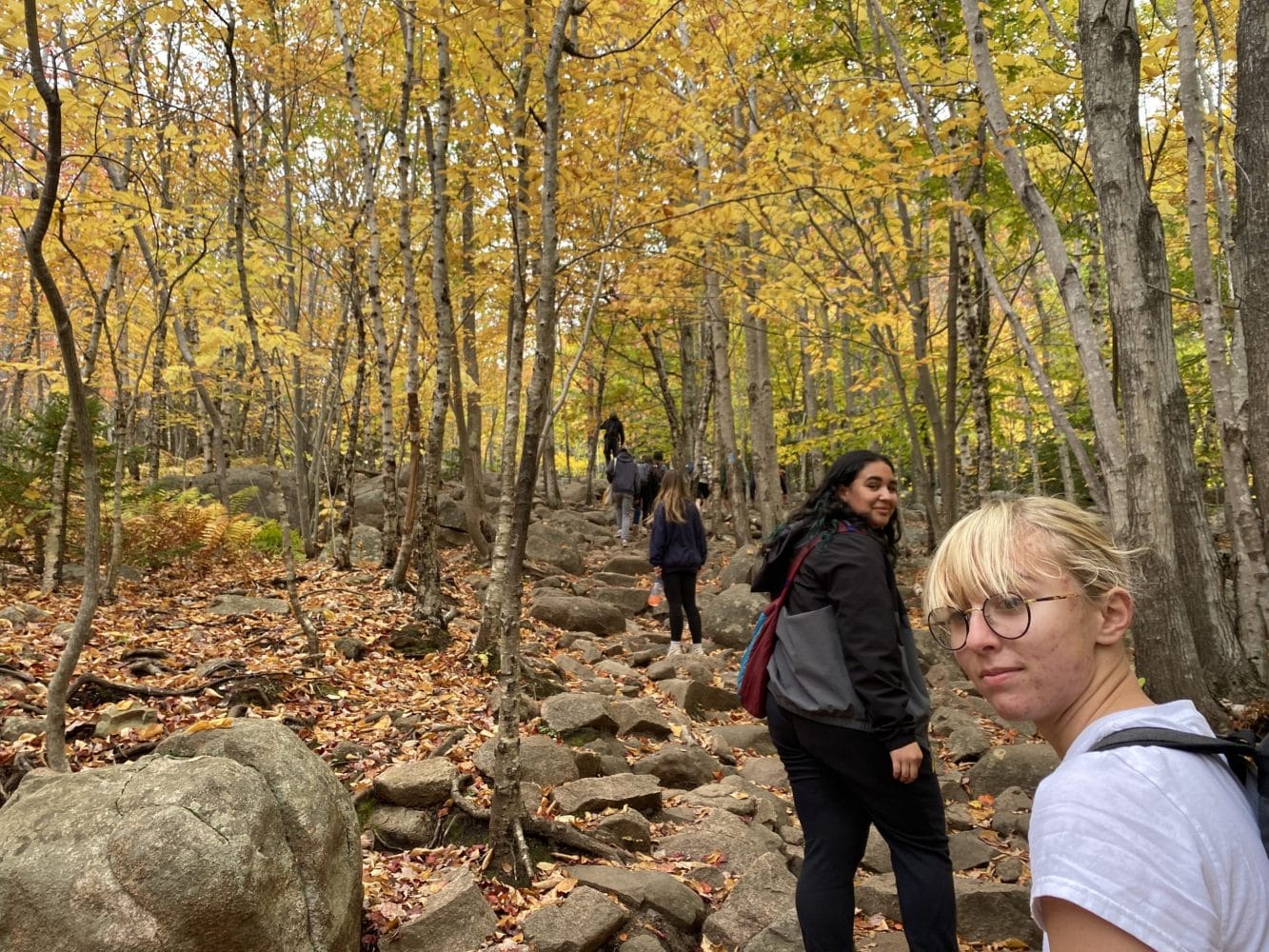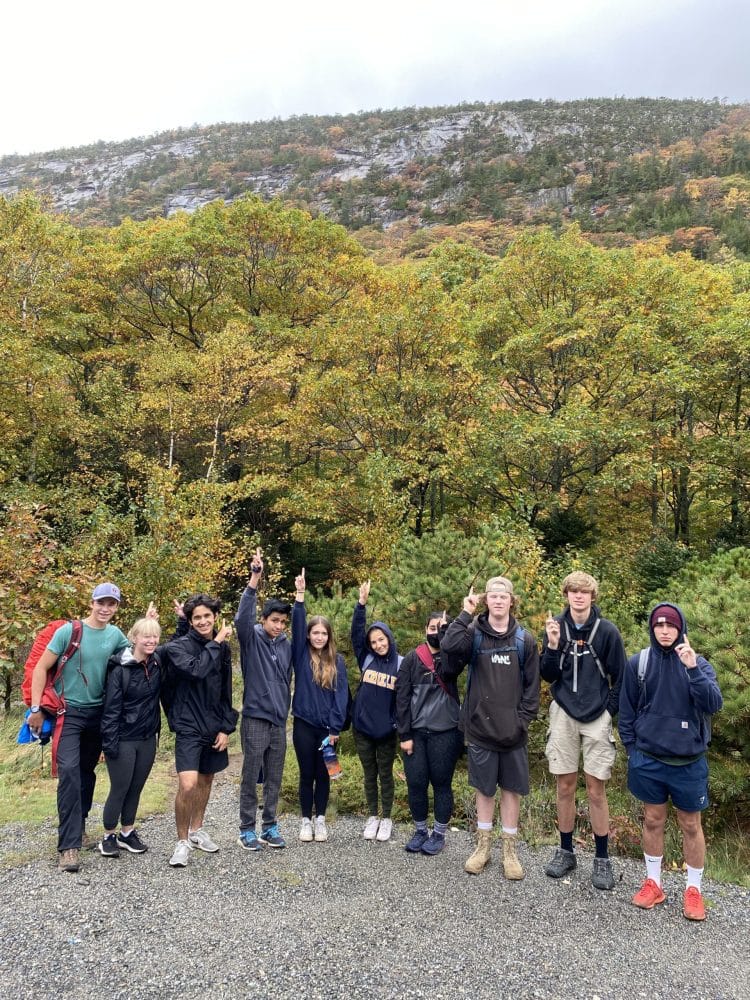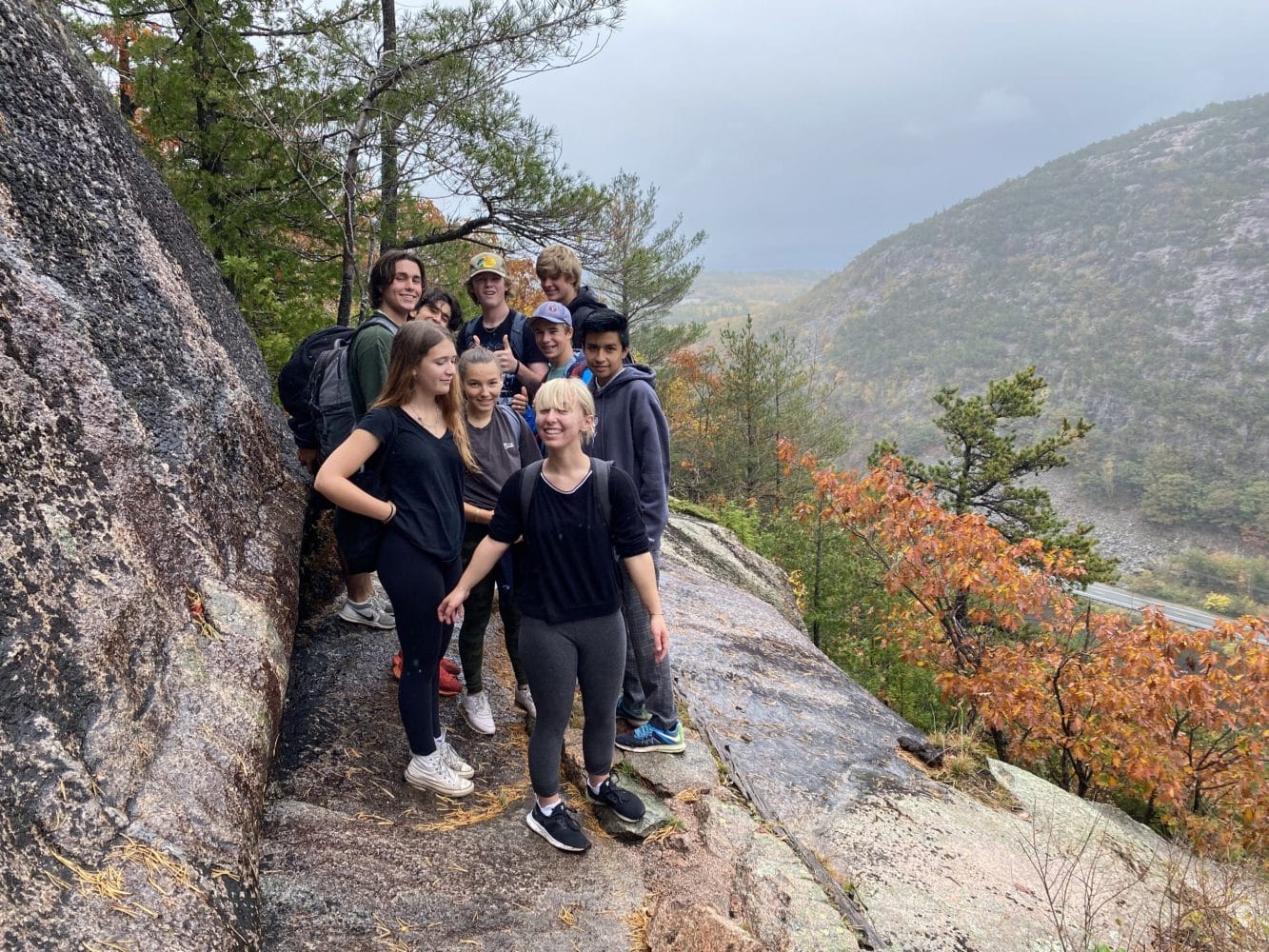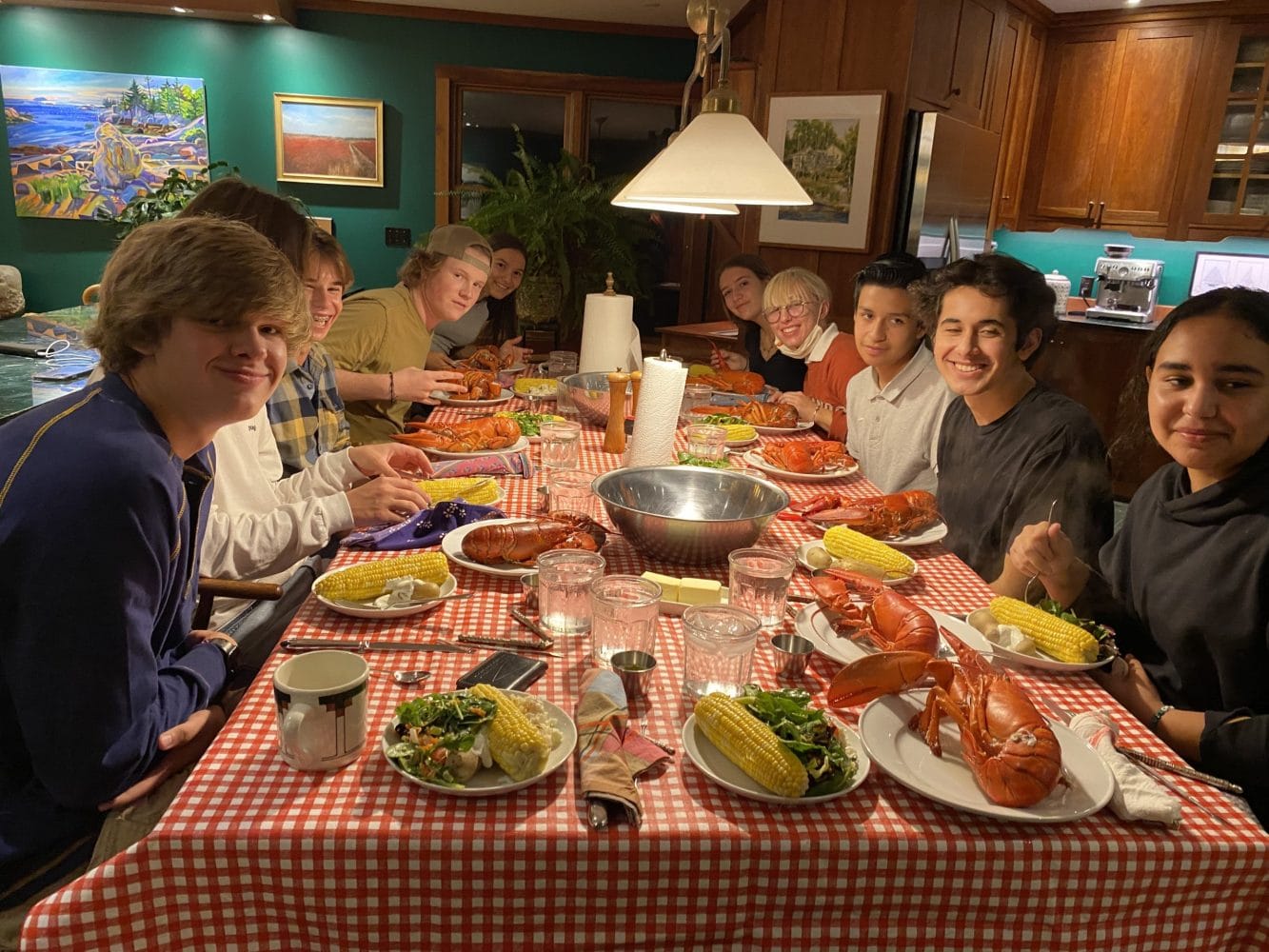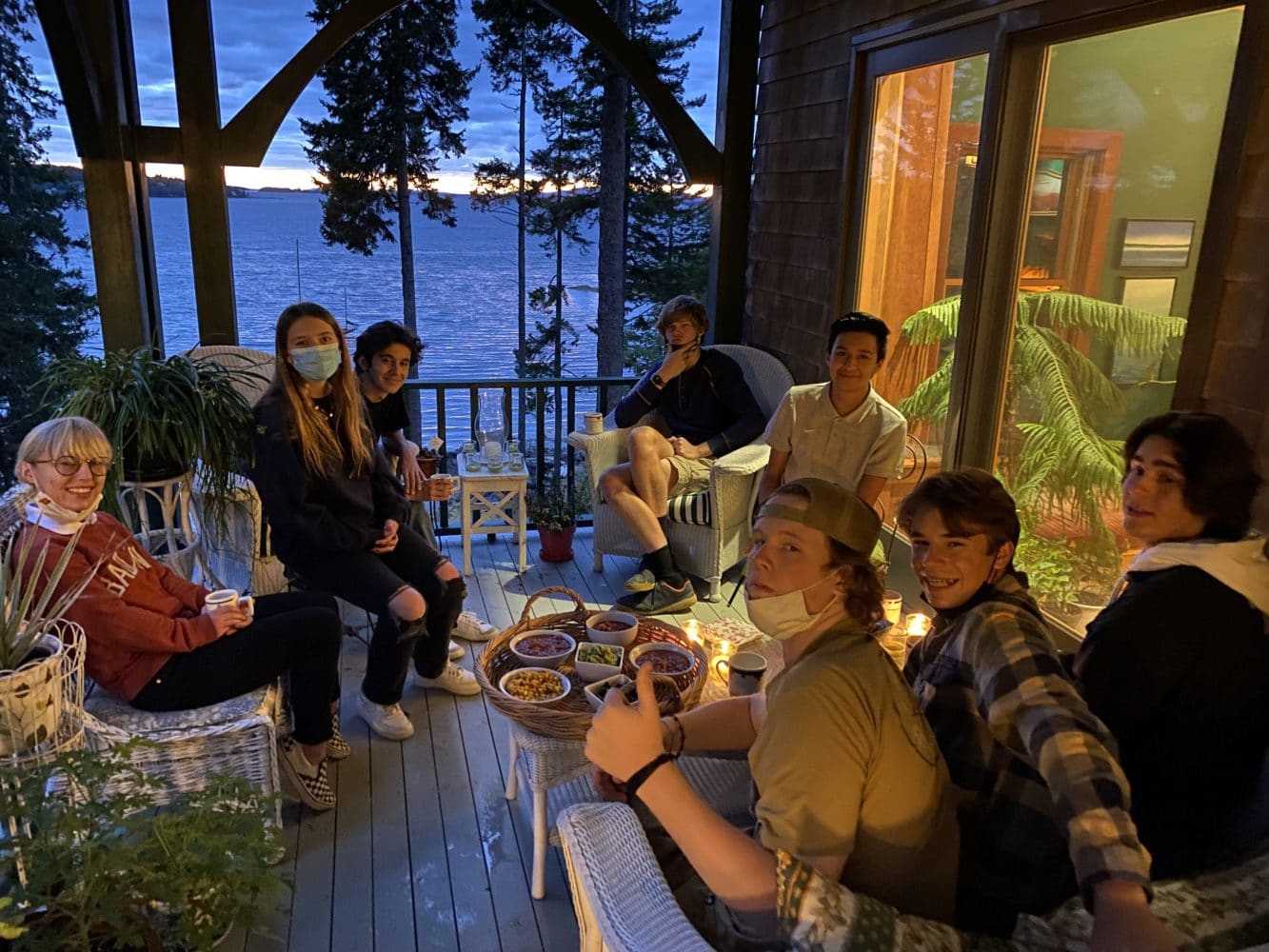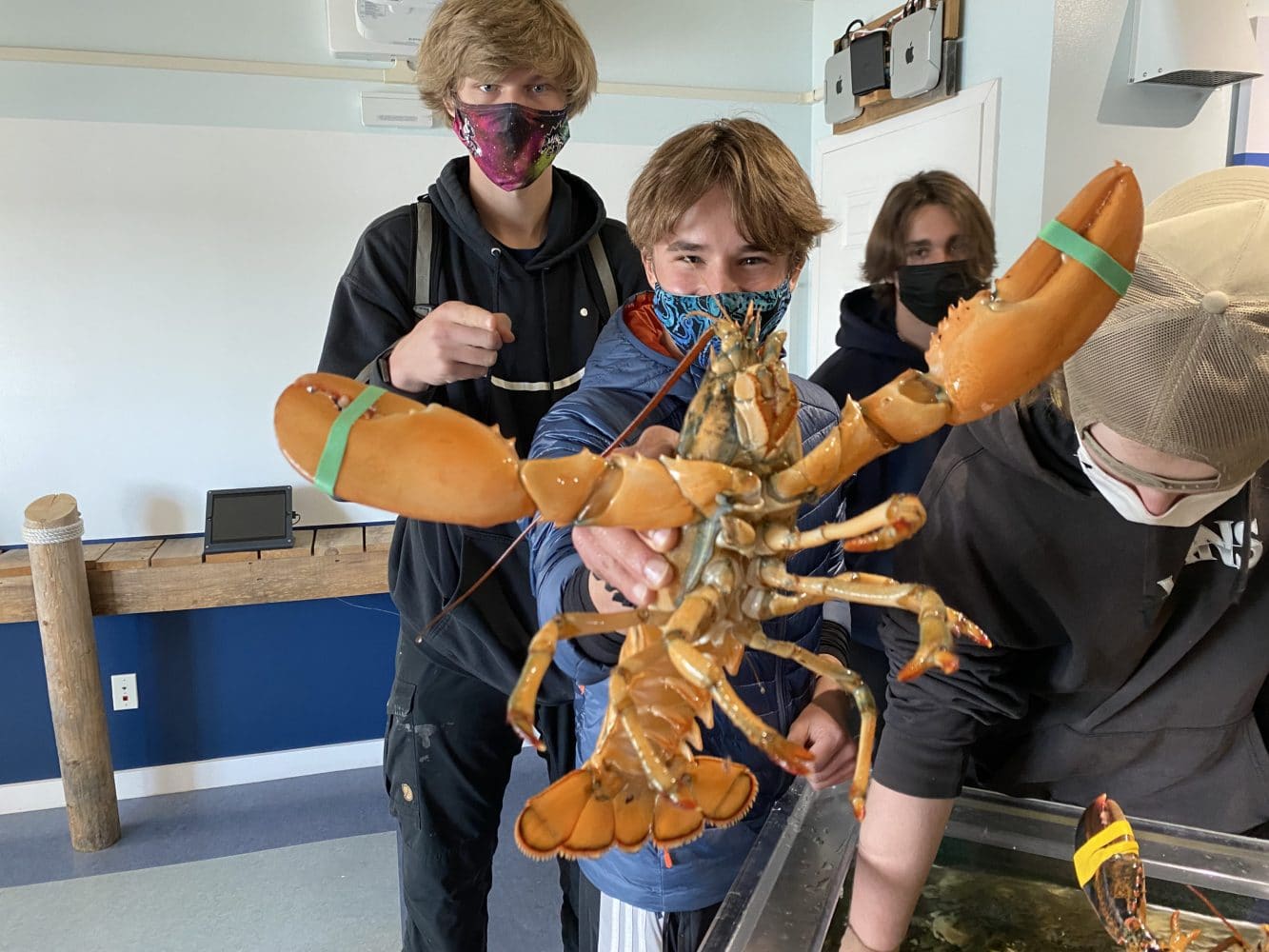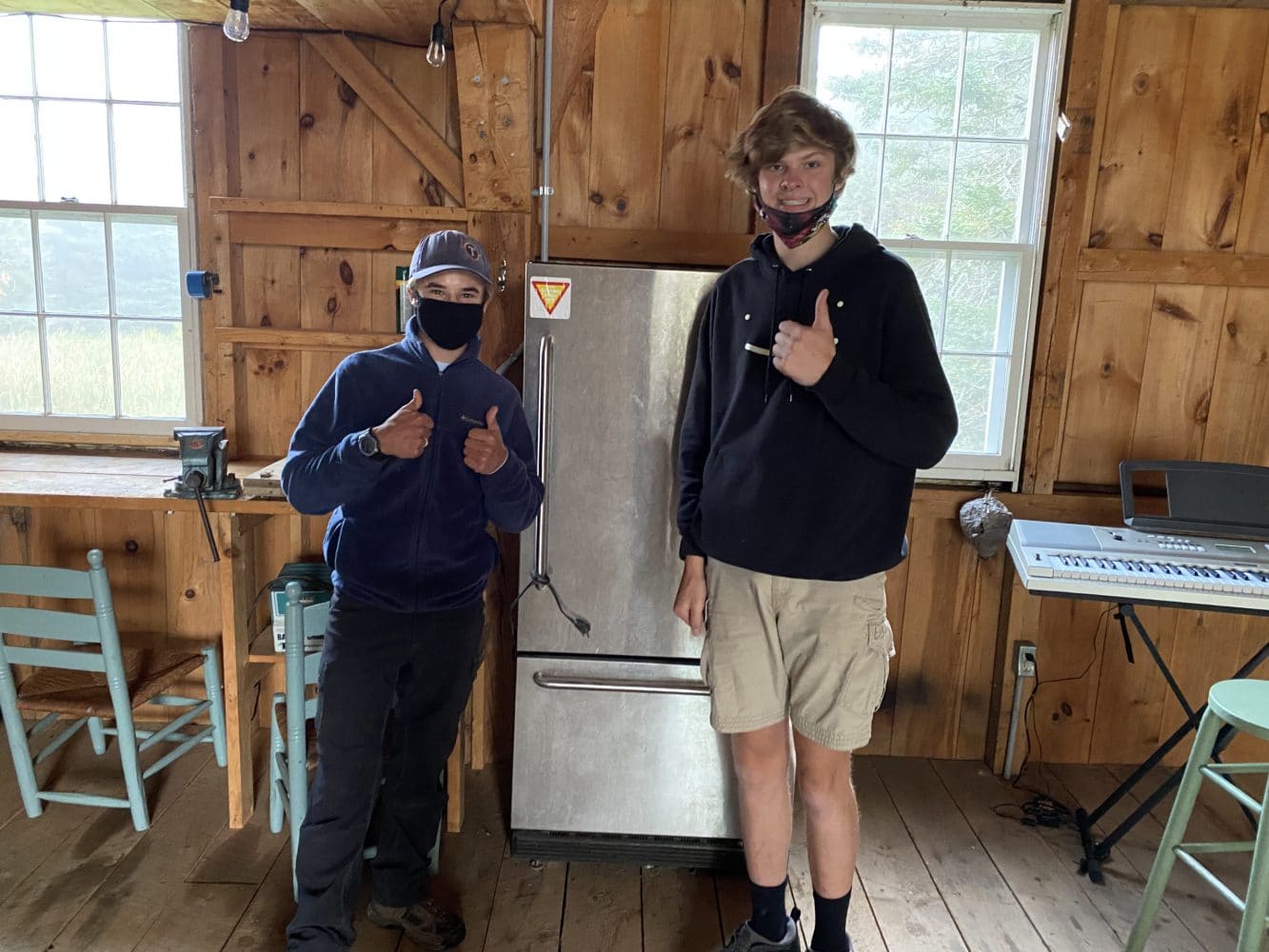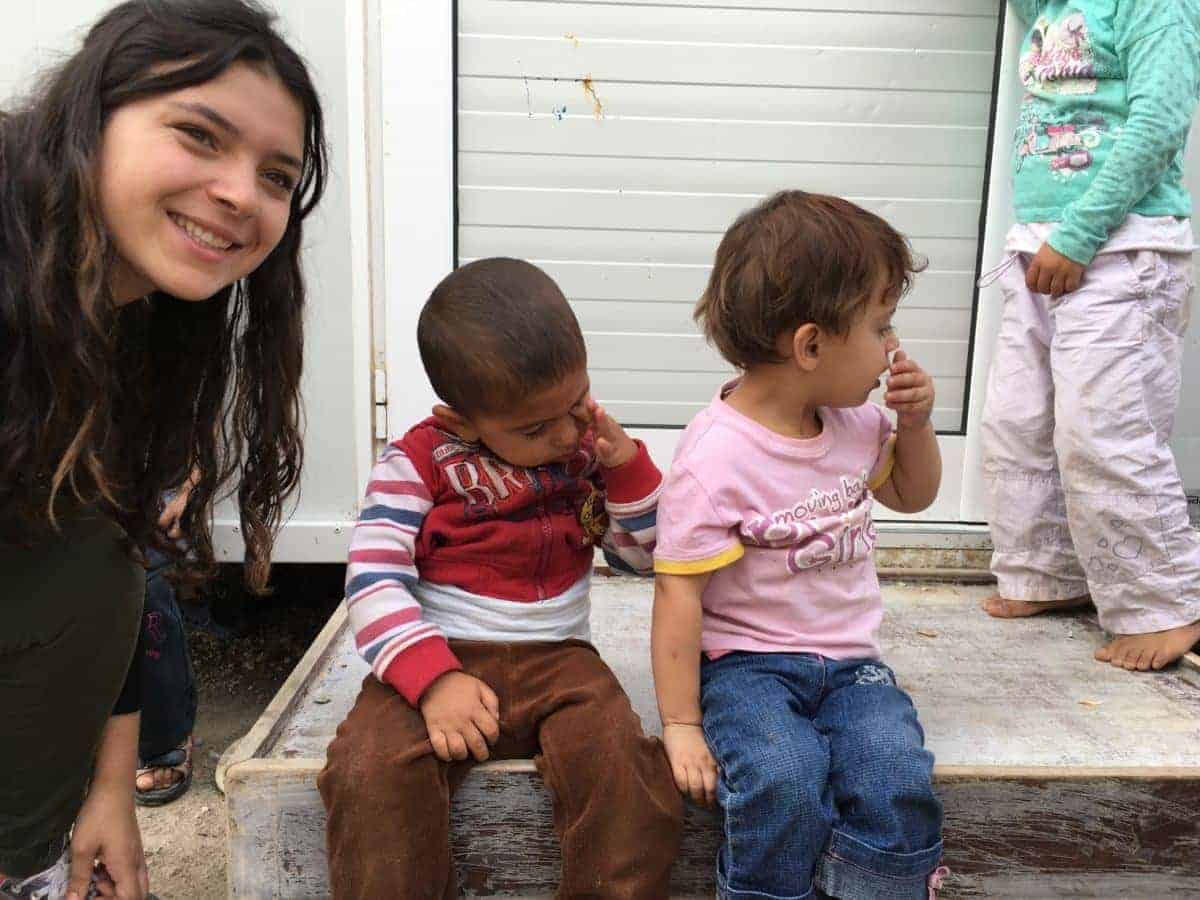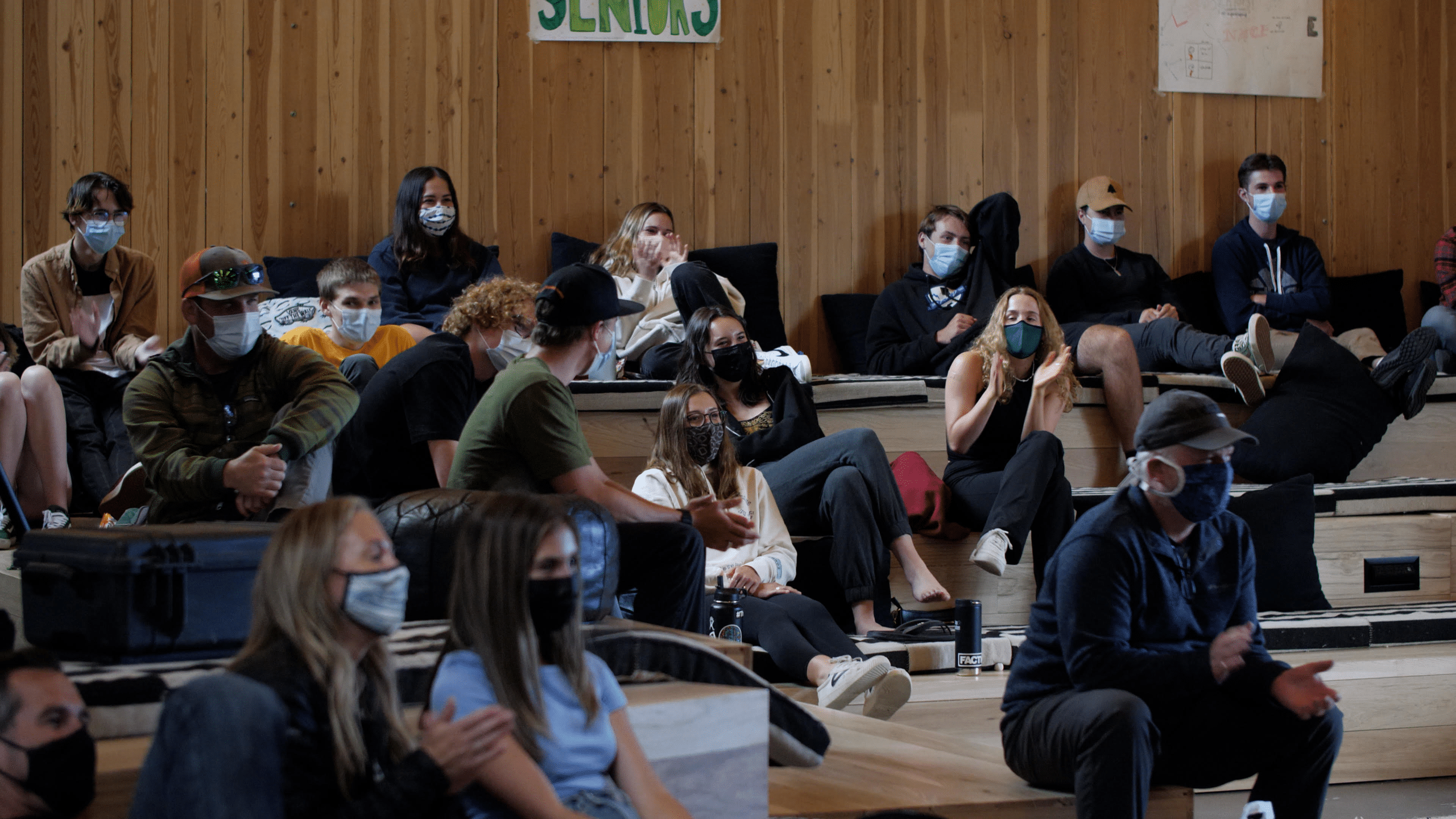The Maine Event: Letter from the Class of 2022
We looked out at the leaves; they came in every color imaginable— yellow, orange, red, purple, magenta, brown, and green. The ladders and bars clanged and creaked as our line of classmates slowly scaled the mountain. No one planned for a scramble like this; alternating between steep steps and short climbs up rock faces, assisted by rebar welded into boulders.
The Wabanaki people had occupied the area for thousands of years, and a few of us wondered how many people had climbed this same route before us, how many generations had gone by since the mountain was first summoned to when our muddy boots clambered up its steep face.
It was day three of our adventure, and we were finally starting to understand what people meant when they attempted to explain an east coast fall to us. The sheer beauty of everything around us left us breathless— alright, perhaps part of our breathlessness was due to the extreme elevation gain, but the view was gorgeous. Rolling hills led into mountains that scraped the bottoms of the cloudy sky. Bits of sunlight shone down onto the forest, highlighting the rainbow of colors in the surrounding valley.
We rested on a sheet of granite at the top of the scramble, taking in the view of the mountains above, the beach below, and the trees around us. The most striking thing was when we stopped looking at the big, postcard picture and really experienced what was happening around us. Noticing the scraps of lichen clinging to the cracks in the rock, the pine needles littering the ground, the miniature cars along the winding road below, and the sweet smell of autumn in the air.
The next ten days were a whirlwind of parks, experts, and trails, broadening our perspectives and uncovering the details of climate change in Maine. Basking in the pouring rain and bonding as a crew over gourmet meals cooked in questionable ways, we went into the world. Dennis Bracale taught us about how he built a carbon neutral house and designed gardens that blended in with the natural environment of a landscape. The scientists and rangers at the Schoodic Institute brought us to the coast to catch crabs and learn about how invasive Green crabs, bolstered by warmer waters, have pushed out native species like the Jonah crabs. We walked the Orono Bog, one of the few places left that preserve Maine’s amazing biodiversity. Lobstermen and women explained how they were meeting the triple bottom lines of sustainability by changing their practices to protect endangered species and how their practices have been focused on sustainability for centuries. State representative Arthur Bell talked about sacrificing aspects of his current community that he loved, for the community that he wanted it to become. All of these experts cared about two things, the work they did and the world they lived in. They weren’t environmentalists by trade, but as educators, rangers, businessmen, designers, resort managers, scientists, fishermen, and people; they put the environment first.
We leave Maine inspired. To teach our generation about how amazing the natural world is and how important it is to protect it. To quote Andy Shepherd, general manager of Saddleback Ski Resort, “What you do not use, you do not value. What you do not value, you risk losing.”
We are uniquely situated as students at TEA and members of the Tahoe Basin Community to be able to experience the wonder of our national parks. Not everyone is this fortunate. We return having reflected about ourselves, what we have learned, and how to apply it on a level accessible to us.
